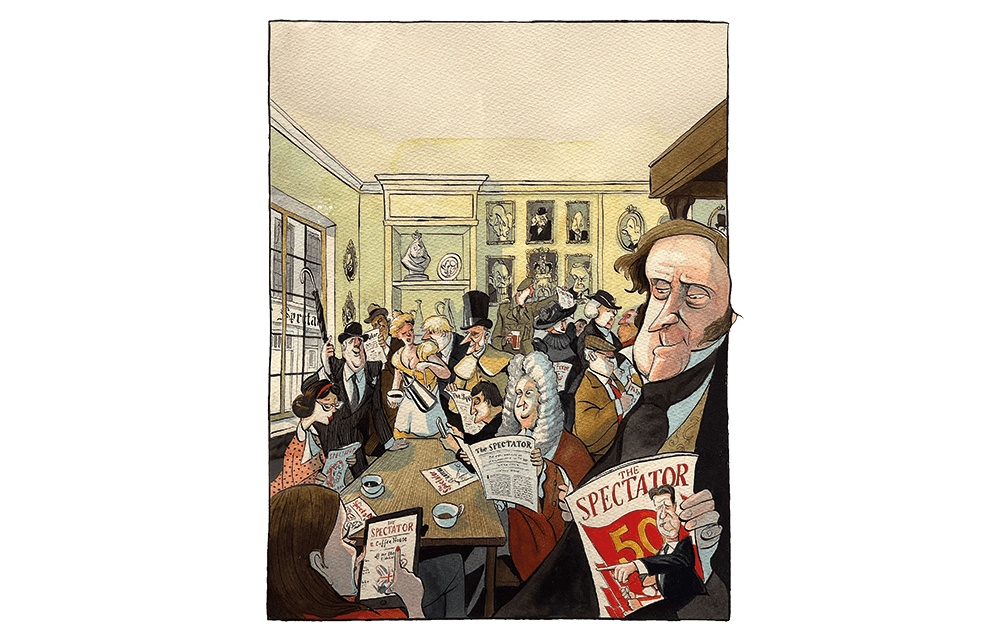Fraser Nelson has narrated this article for you to listen to.
In the late summer of 2009, Andrew Neil invited me to his villa in the Côte d’Azur but didn’t say why. I was mystified. I was then political editor of The Spectator and in eight years of working closely with Andrew, the then chairman, he’d never hinted that he saw me as an editor. I certainly didn’t see myself as one. I was just a writer who knew nothing about how magazines were made. I’d never written a headline and didn’t even have a desk in the office. I wouldn’t know where to start.
We put a notice on our fridge asking staff to make sure that two bottles of Pol Roger were chilling at all times
But when Andrew offered me the job, I heard myself saying yes. Did I think I was good enough? Not even close. But I felt that if I said no, I’d spend the rest of my life wondering what would have happened if I’d had the courage to give it a go. Worthy or not, I was being offered what Boris Johnson had rightly described as the best job in London. Andrew saw in me something that I didn’t see in myself – and I thought I’d find out if he was right.
Fifteen years and 786 editions later, I like to think it worked out OK. The magazine, then valued at £20 million, has just sold for £100 million. Our subscriptions have more than doubled. But in a very real sense, I know this was not my achievement. When making handover notes for my successor, Michael Gove, I’ve tried to explain how we got here and the system we created. In the past 20 years the job of editor has changed, utterly.
No editor of The Spectator needs to worry about political direction.








Comments
Join the debate for just £1 a month
Be part of the conversation with other Spectator readers by getting your first three months for £3.
UNLOCK ACCESS Just £1 a monthAlready a subscriber? Log in